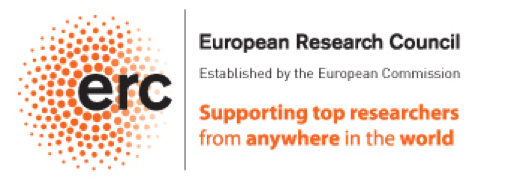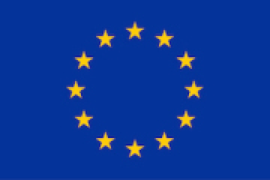About the project
Our Mythical Childhood brings the past, present and future together by exploring ancient myths and their influence on the modern world, in particular the younger generation.
The University of New England is part of this international multidisciplinary project, offering a perspective from the Antipodes.
The Reception of Classical Antiquity in Children’s and Young Adults’ Culture in Response to Regional and Global Challenges
The Our Mythical Childhood project is funded for five years by the ERC’s Horizon 2020 program, through a Consolidator Grant at the University of Warsaw (Prof. Katarzyna Marciniak PI, Grant Agreement 681202). It is a huge international and interdisciplinary project, involving teams from Poland, the United Kingdom, Israel and Cameroon, and of course Australia.
Its mission is to explore the reception of Classical Antiquity in children’s culture around the world.
Through a wide array of outputs (books, teaching tools, animations, and a large-scale survey), we consider the following:
- What influences from Antiquity can we see in contemporary children’s culture?
- How is Antiquity presented in texts and objects aimed at children? What role can Classical material play in children’s lives?
- How do children respond to and transform Antiquity?
- How does Classical Antiquity modulate as it is transmitted around the world?
The project aims at developing a pioneering approach to the reception of Classical Antiquity in children’s and young adults’ contemporary culture. This newly identified research field offers valuable insights into the processes leading to the formation of the culture recipients’ identities along with their initiation into adulthood. However, the most vital potential of this phenomenon remains unexploited, for the research is still selective, focused mainly on Western culture. The project intends to overcome these limitations by applying regional perspectives without the pejorative implication of regional as parochial or inferior. We recognise regions as extremely valuable contexts of the reception of Antiquity, which is not only passively taken in, but also actively reshaped in children’s and young adults’ culture in response to regional and global challenges. Thus, the essence of this innovative approach consists in comparative studies of differing reception models not only across Europe but also America, Australia and New Zealand and – a bold but necessary step – in parts of the world not commonly associated with the Graeco-Roman tradition: Africa and Asia.
Elizabeth Hale: Our mythical scholar
As the Senior Scholar leading the work in the Asia-Pacific, Elizabeth Hale (English, UNE) is gathering data on the transmission of classical material in children’s culture from Australia, New Zealand, Pasifika, and Asian countries. This material is represented in the Our Mythical Childhood survey, and findings are disseminated in her blog, Antipodean Odyssey: Explorations in Children’s Culture and Classical Antiquity. With Dr Miriam Riverlea (PhD, Monash). Elizabeth is also writing Classical Mythology and Children's Literature: an Alphabetical Odyssey, a guide to this rich and varied field, showing how children’s texts represent unique and vivid aspects of classical antiquity, inspiring young readers to find out about past worlds and their influence into the future.
Researcher ProfileMythical authors wanted
Through the Our Mythical Childhood project, Dr Elizabeth Hale is working on a database of world literature and culture for children and young adults inspired by Classical Antiquity. Thus far, a team of researchers from the University of New England, and universities in Australia and New Zealand, have written 120+ entries on a wide range of texts from the Asia-Pacific, including novels, picture books, graphic novels, comics, tv series, and films.
Sample entries can be seen in the Our Mythical Childhood Survey of Children’s and Young Adults’ Culture Inspired by Classical Antiquity
Dr Hale is looking for researchers interested in this subject to contribute entries to the database. Entries relate to the cultural texts for children and young adults - in literature, audio-visual art, music and material culture.
Researchers wishing to participate in creation of the database should meet the following criteria:
- academic experience in the field of cultural studies or literary studies; in case of students: achievements certified by publications, conference papers or activities in scholarly circles
- knowledge of the language of the reported culture text
- knowledge of the cultural situation of the region from which the text is quoted/ region of origin of the text
- proficiency in English (entries should be in English).
For more information, contact Elizabeth Hale ehale@une.edu.au
Candidates will be asked to prepare a sample entry (according to the model we will send).
We reserve the right to choose proposals corresponding to the specifics of the project and database.
This project has received funding from the European Research Council (ERC) under the European Union’s Horizon 2020 research and innovation programme under grant agreement No 681202.




